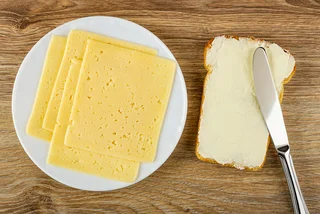The high price of food has some retailers considering the option of letting customers pay off their grocery bills over time. Czechia currently has the fourth highest inflation rate in the European Union.
Some experts, though, say that this does not really solve the problem and the government should instead pursue policies to lower grocery bills.
The online shop Košík.cz already allows deferred payment. It is mainly used by families with children. Rival online shop Rohlik.cz is considering launching the option, but hasn’t yet.
So far only e-shops are interested. Traditional brick-and-mortar grocery stores polled by the Czech News Agency (ČTK) are not currently planning to let customers set up payment plans.
In Britain, the supermarket chain Iceland recently announced it will offer people interest-free loans worth up to £100 or about CZK 3,000, in the form of payment cards for their stores. Customers will repay the loans at £10 per week. The program is in partnership with not-for-profit lender Fair for You, broadcaster ITV reported.
It allows shoppers to initially apply for a Food Club Card worth between £25 to £75. Further credit can be taken out with a limit of £100 outstanding at any one time. Grocery price inflation in Britain jumped to 11.6 percent in early August.
Iceland used to have stores on the Czech market, but it closed up shop earlier this year due in large part to complications brought on by Brexit.
Rohlik.cz said it was considering a similar program. “We are currently dealing with the specific implementation steps. We feel a responsibility to meet and facilitate our customers as much as possible in times of crisis, and therefore we are constantly looking for ways to make shopping with us advantageous and cost-effective,” Rohlik.cz spokeswoman Lutfia Volfová said.
Košík.cz spokesman František Brož said the store started offering the option of deferred payment during the coronavirus crisis. At the time, it was mainly used by people who were buying food online for the first time. “Today, mainly families with children want to take advantage of, for example, an interesting discount for diapers or child-care products and at the same time have a few days until their maternity or parental leave [susbsidy] arrives,” he said.
The option is also popular with ordinary households when they buy larger amounts of goods or more expensive drugstore products at a limited-time discount. People also use it to buy food for pets, he added.
The COOP network does not plan to introduce installment sales of food. COOP’s director of development and marketing Lukáš Němčík said that going into debt is not a solution to the problem. According to him, there should be a deeper discussion about food prices in the Czech Republic.
“For example, we have one of the highest value-added taxes on food, entrepreneurs pay huge energy costs, they have to pay commissions to food voucher companies, or sell cigarettes with disproportionately low margins. These are all aspects that make food more expensive,” he said.
Year-on-year inflation reached 17.5 percent in July, according to data from the Czech Statistical Office (ČSÚ). According to statistics, the prices of food and non-alcoholic beverages in July rose by 19.3 percent year on year. Meat was 21.7 percent more expensive than last year, and cheese was 20.5 percent higher. Oils and fats rose the most, up to 54.3 percent.












 Reading time: 2 minutes
Reading time: 2 minutes 


























